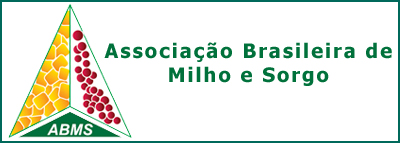TRATAMENTO DE SEMENTES COM BIOESTIMULANTE É INCAPAZ DE MITIGAR A EMERGÊNCIA DESUNIFORME DO MILHO
DOI:
https://doi.org/10.18512/1980-6477/rbms.v15n3p428-438Keywords:
Zea mays, regulador de crescimento, rendimentoAbstract
RESUMO – A irregularidade na época de emergência aumenta a competição intraespecífica. Este trabalho foi conduzido objetivando avaliar o efeito do tratamento de sementes com bioestimulante sobre o desempenho agronômico do milho submetido a diferentes níveis de variabilidade temporal na emergência das plantas. O experimento foi implantado em Lages, SC. Foram testadas quatro épocas de semeadura: 0, 5, 10 e 15 dias, com e sem o tratamento de sementes com bioestimulante. Na época 0 todas as sementes foram semeadas em 19/10/2012 e 19/10/2013 (emergência uniforme). Nas demais épocas, metade das sementes foi semeada no dia 0 (19/10) e a outra metade em covas adjacentes 5, 10 e 15 dias após. O rendimento de grãos decresceu linearmente com o atraso na época de semeadura, independentemente do tratamento de sementes. As taxas de decréscimo na produtividade de grãos variaram de 78 a 182 kg ha-1 dia-1 de atraso na semeadura. O aumento da variabilidade temporal na emergência gerou a presença de plantas dominadas com menor área foliar e menor produção de grãos por espiga, tanto na presença quanto na ausência do bioestimulante. Portanto, o tratamento de sementes de milho com bioestimulante não é uma estratégia efetiva de manejo para mitigar os prejuízos ocasionados pela emergência desuniforme.
Palavras-chave: Zea mays, variabilidade fenológica, regulador de crescimento, rendimento.
SEED TREATMENT WITH BIOSTIMULANT IS UNABLE TO CONTROL UNEVEN MAIZE EMERGENCE
ABSTRACT – The irregularity in plant emergence increases intra-specific competition. This work was carried out aiming to evaluate the effect of treatment of seeds with biostimulant on the agronomic performance of maize subjected to different times of plant emergence. The experiment was set in Lages, SC. Four sowing times were tested, 0, 5, 10 and 15 days, with and without seed treatment with biostimulant. In the sowing time 0, all seeds were sowed on 10/19/2012 and 10/19/2013 (even emergence). At the other sowing times, half seeds were sowed on day 0 (10/19) and the other half 5, 10 and 15 days later (uneven emergence). Grain yield decreased linearly with the increase in the delaying time of the sowing, regardless seed treatment with biostimulant. The decrease in grain productivity ranged from 78 to 182 kg ha-1 day-1 of sowing delay. The increase of temporal variability in emergence caused the occurrence of dominated plants with small leaf area and lower number of grains per ear, with and without biostimulant application. Therefore, treatment of maize seeds with biostimulant is not an effective management strategy to reduce damages caused by uneven plant emergence.
Keywords: Zea mays, phenological variability, growth regulator, yield.
Downloads
Published
How to Cite
Issue
Section
License
Authors retain copyright and grant the journal right of first publication with the work simultaneously licensed under the Creative Commons Attribution License that allows the sharing of work and recognition of the work of authorship and initial publication in this journal.
Authors are able to take on additional contracts separately for non-exclusive distribution of the version of the paper published in this journal (eg, in an institutional repository or publish as a book), with acknowledgment of its initial publication in this journal.
Authors are permitted and encouraged to post their work online (eg, in institutional repositories or on their website) at any point before or during the editorial process, as this may leadto productive exchanges, as well as increase the impact and citation of published work.



